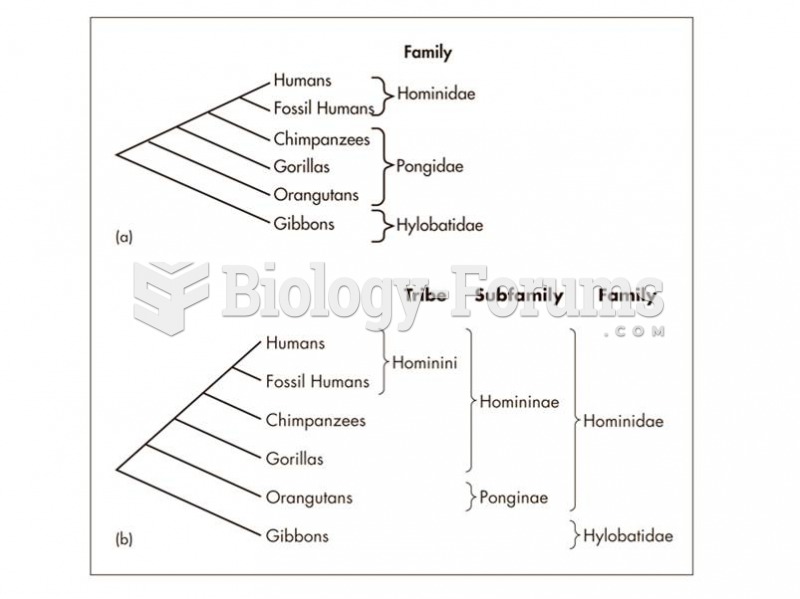|
|
|
You should not take more than 1,000 mg of vitamin E per day. Doses above this amount increase the risk of bleeding problems that can lead to a stroke.
There are immediate benefits of chiropractic adjustments that are visible via magnetic resonance imaging (MRI). It shows that spinal manipulation therapy is effective in decreasing pain and increasing the gaps between the vertebrae, reducing pressure that leads to pain.
Less than one of every three adults with high LDL cholesterol has the condition under control. Only 48.1% with the condition are being treated for it.
Approximately 15–25% of recognized pregnancies end in miscarriage. However, many miscarriages often occur before a woman even knows she is pregnant.
Blood in the urine can be a sign of a kidney stone, glomerulonephritis, or other kidney problems.
 Circular movement of ice over lateral area just distal to the elbow. Use medium pressure to apply ...
Circular movement of ice over lateral area just distal to the elbow. Use medium pressure to apply ...
 Apply circular friction with the heels of the hands to tendons that cross the knee. Place heels of ...
Apply circular friction with the heels of the hands to tendons that cross the knee. Place heels of ...





